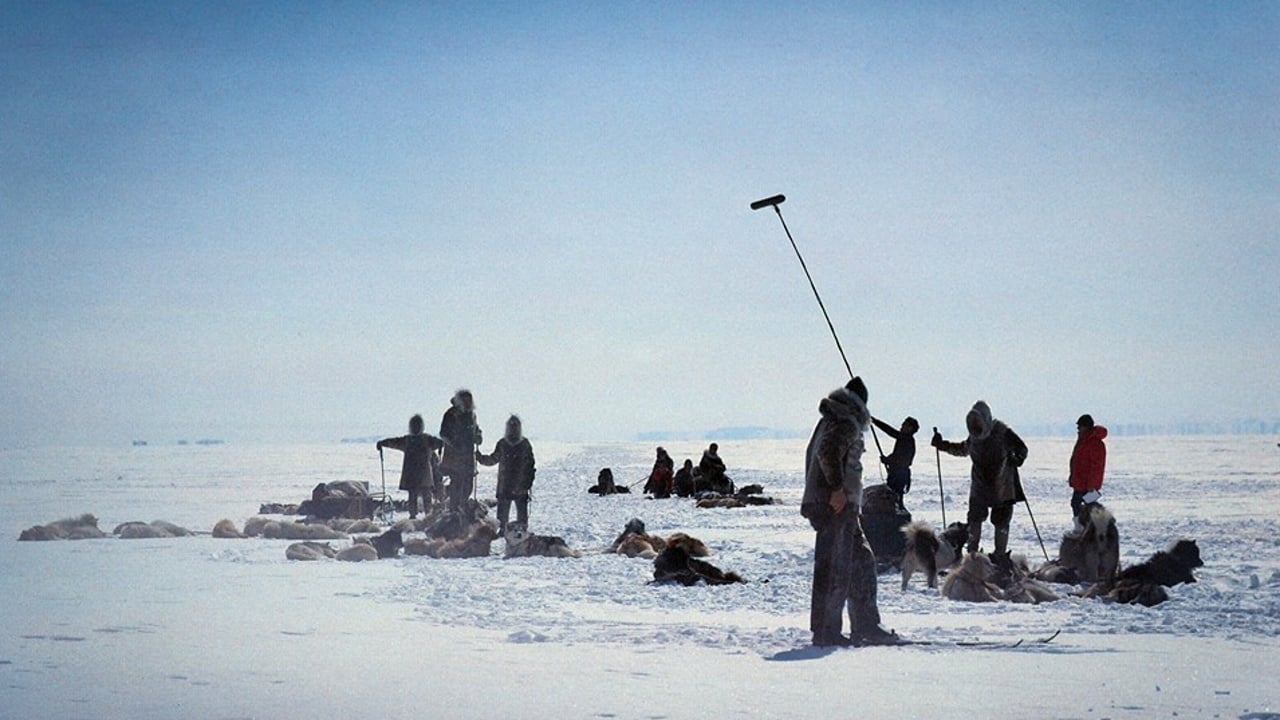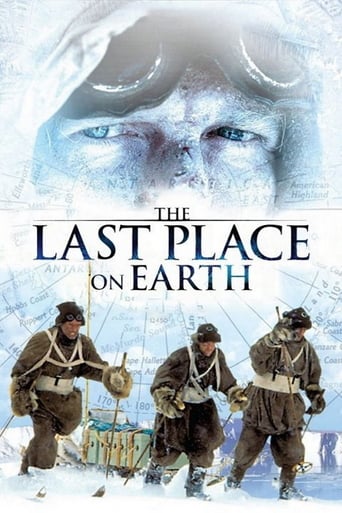

The Worst Film Ever
... View MoreIt is both painfully honest and laugh-out-loud funny at the same time.
... View MoreThe biggest problem with this movie is it’s a little better than you think it might be, which somehow makes it worse. As in, it takes itself a bit too seriously, which makes most of the movie feel kind of dull.
... View MoreA film of deceptively outspoken contemporary relevance, this is cinema at its most alert, alarming and alive.
... View MoreThis Movie has not been available in DVD format, at least I watched it from TV download with the whole seven episodes /6h 36min/. Another Movie, "Shackleton" (2002), which comes as continuation to South Pole Race was also released as TV Mini-Series but not circulating as DVD. Both Films are rare cinematographic achievement, shot in Greenland and the vicinity. No special effects are employed and Polar Nature is shot the way it is - unspoiled but alien and menacing. Temperatures are 50 degree below zero, with blizzards, ice breaking, starvation, disorientation, freezing and death. Compromise is impossible between Polar Glaciers and Man. It's battle for survival at the utmost, watch it.I read the reviews and I am impressed. The IMDb doesn't give more titles dealing with Polar Exploration and whether there are many documentaries built on the same subject is out of scope for this review. Baseline story follows the narrative from Roland Huntford's book "Last Place On Earth" published 1979, with several revised and updated editions. Shackleton's heroism from the second movie is also beyond doubt. It is not clear whether scenario has used another Roland Huntford story. One thing is clear that for 1914-1916 expedition Ernest Shackleton approached the Antarctica continent via Tiera del Fuego of Latin America and then into the Weddell Sea. Scott and Amundsen, on the other hand, made their access from New Zealand, Australia and Tasmania - proceeding way into Ross Sea and then camping in their bases some hundred miles apart, McMurdo Sound and Whales Bay. Details on the whole race with Scott-Amundsen comparison is available in Wikipedia.Now let's try to make the long story short. Nobody is guilty that Robert Scott and his party of five perished. Scott knew that Amundsen was brewing something in Madeira. He had talked to Nansen, who told him that Amundsen had borrowed his ship "Fram" and intended to attack the Poles. When Scott learned that a rival expedition had come along he lost his nerves. Following events could be traced step-by-step and still the winner is unequivocal. Strongman Amundsen won the race by four weeks. His outward track was safe and he made it to Tasmania. Scott conquered the South Pole but couldn't make it homeward. He and his crew died ice-locked in a tent eleven miles from the nearest depot.Amundsen was the best explorer from late Age of Discoveries. He represents the ideal Nordic type - a real Viking of Modern Times. Some thought Amundsen was crazy enough to do all these exploits. Look at his biography in the forthcoming 20 years. He first went through the NW passage (1903-1906). He made west-east transit of NE passage with new ship "Maud" where he adopted two Chukchi girls then dismissed them (1918-1920). He reached the North Pole again with airship "Norge", a dirigible constructed by Italian Umberto Nobile (1926). Last, two years later, at age 56 he dashed forward to save his friend Nobile who crashed over the pole with "Norge". Mussolini didn't wanted him to make the rescue flight but Amundsen took a French seaplane for private mission and perished in sky. Nobile and the castaways were saved by Russian ice-breaker "Krasin". Well, that's it ...
... View MoreI first saw "The Last Place on Earth" back when it was first broadcast in the U.S. Having just finished Roland Huntford's "Scott and Amundsen" at that time, I thought the mini-series was terrific.While I still agree with those who think that it was excellent, I now question the series's accuracy. My chief criticism has to do with the characterization of the two men as representing two different social classes and the characterization of Amundsen as someone who would say that his emotion upon reaching the Pole was joy in simply being alive. He was a darker, more complex, and more ambitious man than he is shown to be. By the same token, Scott was not an upper-class twit. The race for the Pole was not a class war.The other reviews have covered many of the other ways in which the accuracy of the series could be criticized. There have been many facts uncovered which were not available to Huntford and the series. But how often does one get to immerse oneself for hours in a film about Antarctic history? The pleasures of the series make me overlook its errors.I wish someone would make a film of Ted Tally's play "Terra Nova."
... View MoreStill splendid TV but the debate on Scott has moved on. After the glorifying of the early years to buoy up a country stunned by the losses of the Boer War came the debunking by Huntford. Since then there have been many novels questioning his motives, principally by Sir Ranulph Fiennes and Susan Solomon. I have just read David Crane's excellent book which, at last, seems to provide a balanced account of a remarkable man, rooted in Victorian values but with an enquiring and open mind ahead of his time. If your interest is piqued by this film there are books galore on Scott for you to read to explore the debate for yourselves. You can even try to find The Race by Kare Holt "a writer as determined to rubbish Amundsen's reputation as Huntford was to rubbish Scott's". All in all good entertainment, especially for those who love a good anti-English polemic a la Braveheart, but don't confuse this with the truth.
... View MoreRoland Huntford's meticulous and exhaustive research of Scott and Amudsen's Antarctic exploration efforts for winning the South Pole help make the making of this film a Directors dream and challenge. Outstanding cinematography and period costume design push this great story to the highest level of viewing. The film should be mandatory viewing for all highschoolers. The historical and geographical values will enhance ones knowledge of this very special period of Antarctic exploration in the early 1900s. The British and Norwegian actors perform their skills with convincing emotion. The film, based on Huntford's documentary brilliance, gives us all time to ponder what really happened in claiming the South Pole and lays to rest a good deal of sentimental nonsense,which some of us were subjected to during our high school days.
... View More